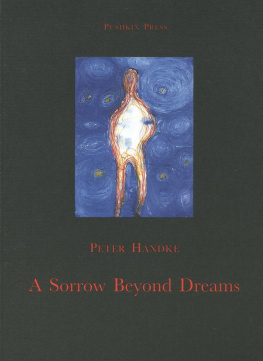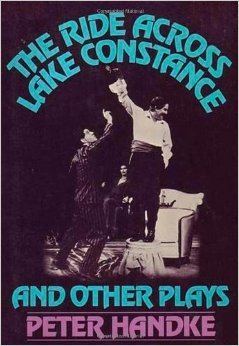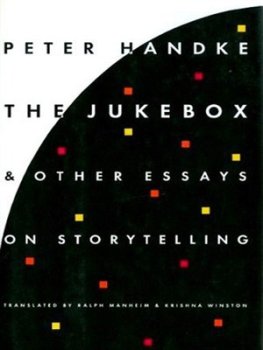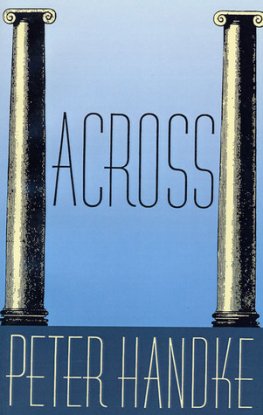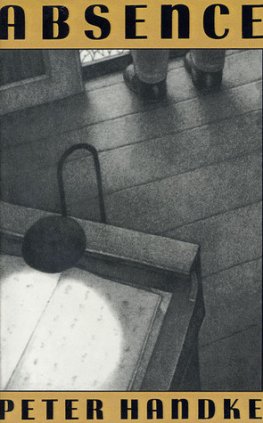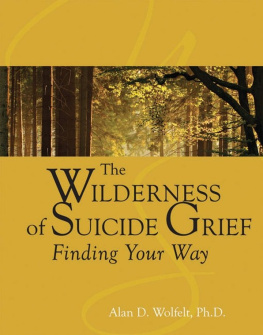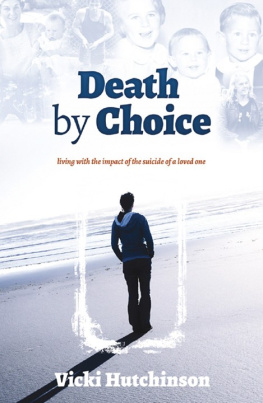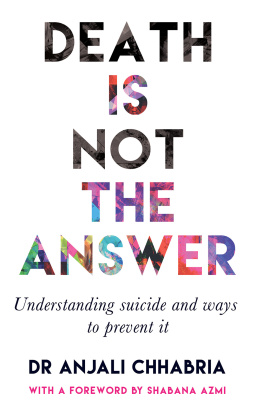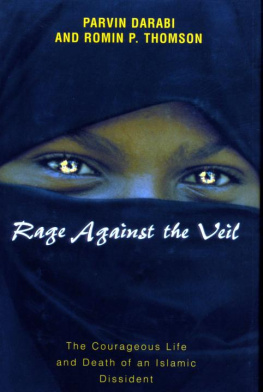Dusk was falling quickly. It was just after 7 p.m., and the month was October.
T HE SUNDAY EDITION of the Krntner Volkszeitung carried the following item under Local News: In the village of A. (G. township), a housewife, aged fifty-one, committed suicide on Friday night by taking an overdose of sleeping pills.
My mother has been dead for almost seven weeks; I had better get to work before the need to write about her, which I felt so strongly at her funeral, dies away and I fall back into the dull speechlessness with which I reacted to the news of her suicide. Yes, get to work: for, intensely as I sometimes feel the need to write about my mother, this need is so vague that if I didnt work at it I would, in my present state of mind, just sit at my typewriter pounding out the same letters over and over again. This sort of kinetic therapy alone would do me no good; it would only make me passive and apathetic. I might just as well take a tripif I were travelling, my mindless dozing and lounging around wouldnt get on my nerves so much.
During the last few weeks I have been more irritable than usual; disorder, cold and silence drive me to distraction ; I cant see a bread crumb or a bit of fluff on the floor without bending down to pick it up. Thinking about this suicide, I become so insensible that I am sometimes startled to find that an object I have been holding hasnt fallen out of my hand. Yet I long for such moments, because they shake me out of my apathy and clear my head. My sense of horror makes me feel better : at last my boredom is gone; an unresisting body, no more exhausting distances, a painless passage of time.
The worst thing right now would be sympathy, expressed in a word or even a glance. I would turn away or cut the sympathiser short, because I need the feeling that what I am going through is incomprehensible and incommunicable; only then does the horror seem meaningful and real. If anyone talks to me about it, the boredom comes back, and everything is unreal again. Nevertheless, for no reason at all, I sometimes tell people about my mothers suicide, but if they dare to mention it I am furious. What I really want them to do is change the subject and tease me about something.
In his latest movie someone asks James Bond whether his enemy, whom he has just thrown over a stair rail, is dead. His answerLets hope so!made me laugh with relief. Jokes about dying and being dead dont bother me at all; on the contrary, they make me feel good.
Actually, my moments of horror are brief, and what I feel is not so much horror as unreality; seconds later, the world closes in again; if someone is with me I try to be especially attentive, as though I had just been rude.
Now that Ive begun to write, these states seem to have dwindled and passed, probably because I try to describe them as accurately as possible. In describing them, I begin to remember them as belonging to a concluded period of my life, and the effort of remembering and formulating keeps me so busy that the short daydreams of the last few weeks have stopped. I look back on them as intermittent states: suddenly my day-to-day worldwhich, after all, consists only of images repeated ad nauseam over a period of years and decades since they were newfell apart, and my mind became so empty that it ached.
That is over now; I no longer fall into these states. When I write, I necessarily write about the past, about something which, at least while I am writing, is behind me. As usual when engaged in literary work, I am alienated from myself and transformed into an object, a remembering and formulating machine. I am writing the story of my mother, first of all because I think I know more about her and how she came to her death than any outside investigator who might, with the help of a religious, psychological, or sociological guide to the interpretation of dreams, arrive at a facile explanation of this interesting case of suicide; but second in my own interest, because having something to do brings me back to life; and lastly because, like an outside investigator, though in a different way, I would like to represent this VOLUNTARY DEATH as an exemplary case.
Of course, all these justifications are arbitrary and could just as well be replaced by others that would be equally arbitrary. In any case, I experienced moments of extreme speechlessness and needed to formulate themthe motive that has led men to write from time immemorial.
In my mothers purse, when I arrived for the funeral, I found a post-office receipt for a registered letter bearing the number 432. On Friday evening, before going home and taking the sleeping pills, she had mailed a registered letter containing a copy of her will to my address in Frankfurt. (But why also SPECIAL DELIVERY ?) On Monday I went to the same post office to telephone. That was two and a half days after her death. On the desk in front of the post-office clerk, I saw the yellow roll of registration stickers; nine more registered letters had been mailed over the weekend; the next number was 442, and this image was so similar to the number I had in my head that at first glance I became confused and thought for a moment nothing had happened. The desire to tell someone about it cheered me up. It was such a bright day; the snow; we were eating soup with liver dumplings; it began with : if I started like this, it would all seem to be made up, I would not be extorting personal sympathy from my listener or reader, I would merely be telling him a rather fantastic story.
Well then, it began with my mother being born more than fifty years ago in the same village where she died. At that time all the land that was good for anything in the region belonged either to the church or to noble landowners; part of it was leased to the population, which consisted mostly of artisans and peasants. The general indigence was such that few peasants owned their land. For practical purposes, the conditions were the same as before 1848; serfdom had been abolished in a merely formal sense. My grandfatherhe is still living, aged eighty-sixwas a carpenter; in addition, he and his wife worked a few acres of rented farm and pasture land. He was of Slovenian descent and illegitimate. Most of the children born to peasants in those days were illegitimate, because years after attaining sexual maturity, few were in possession of living quarters or the means to support a household. His mother was the daughter of a rather well-to -do peasant, who, however, never regarded his hired man, my grandfathers father, as anything more than the baby-maker. Nevertheless, my grandfathers mother inherited money enough to buy a small farm.
And so it came about that my grandfather was the first of his linegenerations of hired men with blanks in their baptismal certificates, who had been born and who died in other peoples houses and left little or no inheritance because their one and only possession, their Sunday suit, had been lowered into the grave with themto grow up in surroundings where he could really feel at home and who was not merely tolerated in return for his daily toil.
Recently the financial section of one of our newspapers carried an apologia for the economic principles of the Western world. Property, it said, was MATERIALISED FREEDOM . This may in his time have been true of my grandfather, the first in a long line of peasants fettered by poverty to own anything at all, let alone a house and a piece of land. The consciousness of owning something had so liberating an effect that after generations of will-lessness a will could now make its appearance: the will to become still freer. And that meant only one thingjustifiably so for my grandfather in his situationto enlarge his property, for the farm he started out with was so small that nearly all his labours went into holding on to it. The ambitious smallholders only hope lay in saving.

